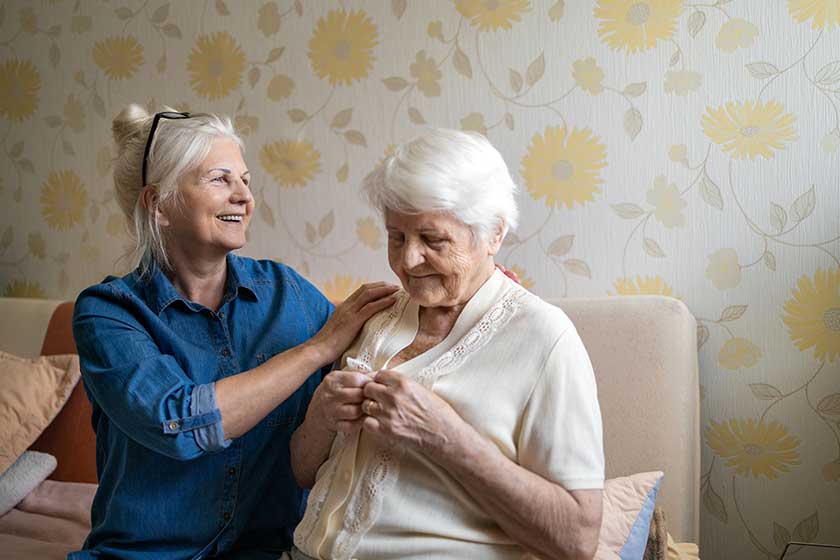Becoming a family caregiver for a loved one can be a rewarding but challenging experience. It’s often an abrupt change in your life, leaving you to navigate the complexities of senior living options and caregiving responsibilities. Here are some essential tips to help you adapt to your new role and provide the best possible care for your loved one.
Educate Yourself on Your Loved One’s Needs
Understanding the specific medical conditions and daily requirements of the person you’re caring for is crucial. Consult with their healthcare professionals, research online, and join support groups to gain knowledge about their illness, medications, and any necessary treatments. This information will empower you to make informed decisions about their care.
Develop a Care Plan
Creating a comprehensive care plan tailored to your loved one’s needs is essential. This plan should include medical appointments, medication schedules, dietary requirements, and any necessary therapy or exercise routines. Regularly review and adjust the plan to accommodate changes in their condition or needs.
Establish a Routine
Maintaining a consistent daily routine can make your caregiving responsibilities more manageable and provide stability for your loved one. Establish a routine that includes designated times for meals, medication, personal care, and leisure activities. This structure can help reduce stress for both you and the person you’re caring for.
Seek Professional Assistance
While providing care for your loved one, don’t hesitate to seek professional help when necessary. Home health agencies, adult day care centers, and respite care services can provide valuable support, giving you a break and ensuring your loved one’s needs are met. Explore available senior living options to determine which services best suit your situation.
Maintain Open Communication
Keep the lines of communication open with your loved one, family members, and healthcare providers. Share updates on your loved one’s condition, discuss concerns, and collaborate on caregiving decisions. Honest and open communication is key to ensuring everyone is on the same page and working together effectively.
Prioritize Self-Care
As a caregiver, it’s easy to neglect your own well-being. However, taking care of yourself is essential to providing quality care for your loved one. Set aside time for yourself to relax, exercise, and engage in hobbies or activities you enjoy. Don’t hesitate to seek emotional support from friends, family, or support groups.
Stay Organized
Keeping track of medical information, appointments, and financial matters can be overwhelming. Use a calendar, planner, or smartphone app to help you stay organized and manage these responsibilities efficiently. Staying organized can help reduce stress and ensure important details don’t slip through the cracks.
Be Patient and Compassionate
Transitioning to a caregiving role can be a challenging and emotional journey. Practice patience and compassion with yourself and your loved one as you both adjust to this new chapter in your lives. Recognize that it’s normal to feel a range of emotions, including frustration, sadness, and even resentment. Accepting these feelings and seeking support can help you cope and maintain a positive outlook.
Learn to Accept Help
Don’t be afraid to ask for and accept help from others. Delegate tasks to family members, friends, or professionals to prevent burnout and ensure your loved one receives the best possible care. Remember that you don’t have to do everything alone—relying on a support network can make your caregiving journey more manageable and fulfilling.







